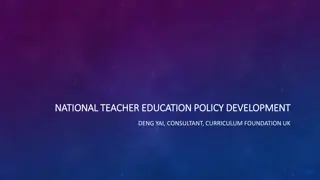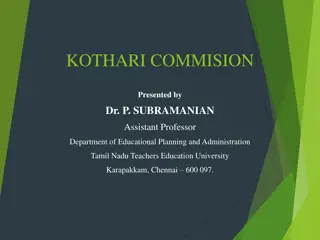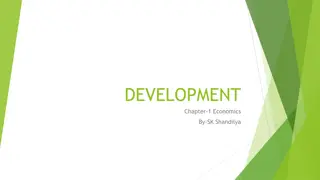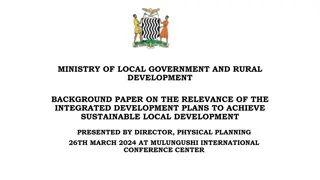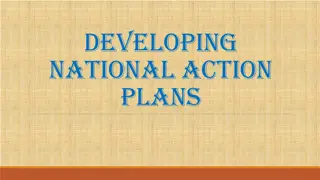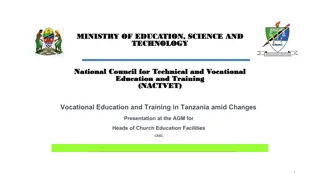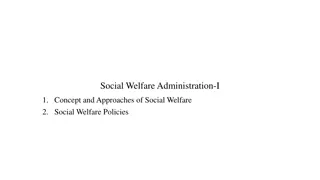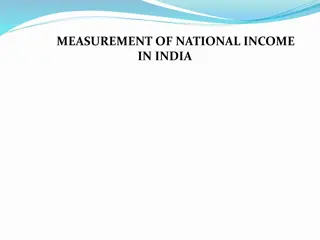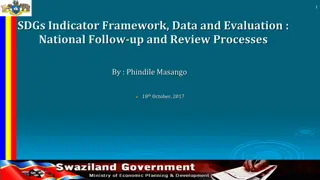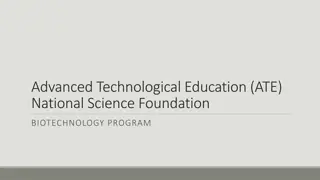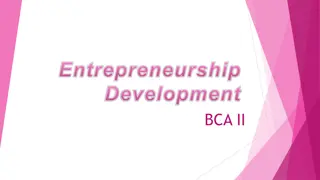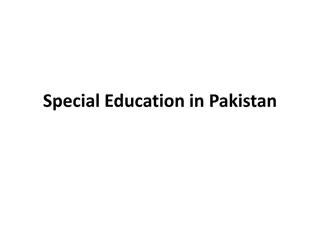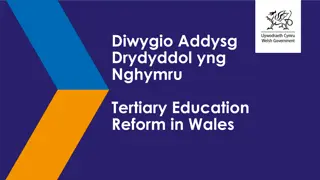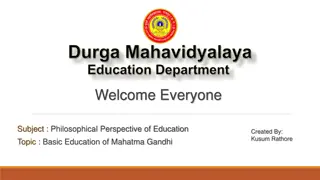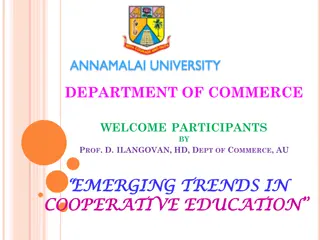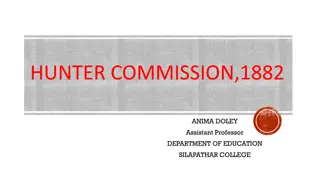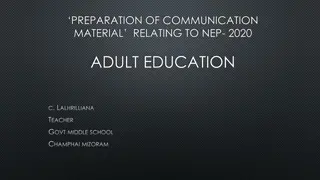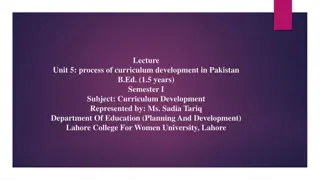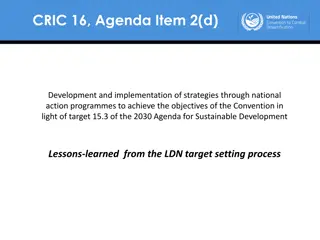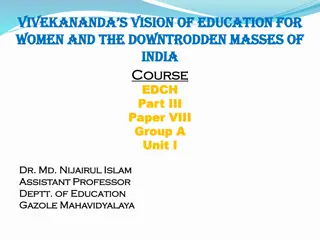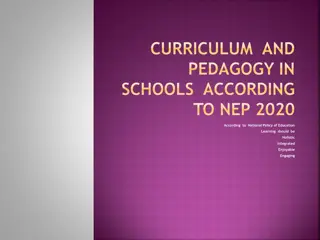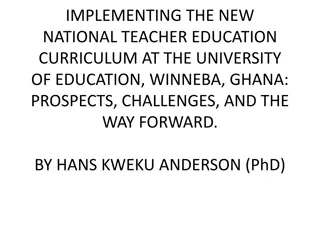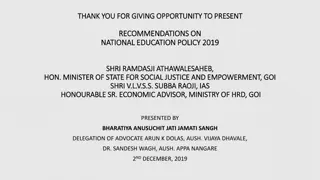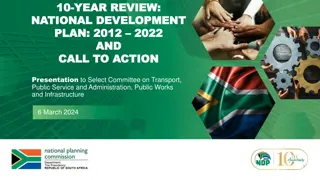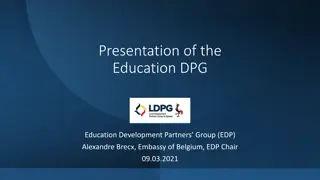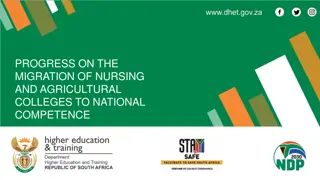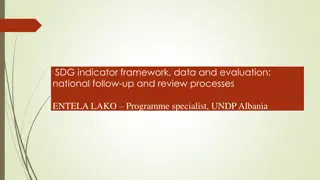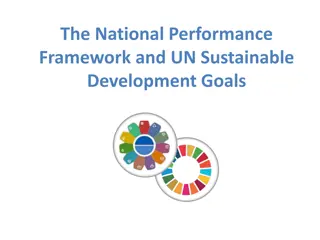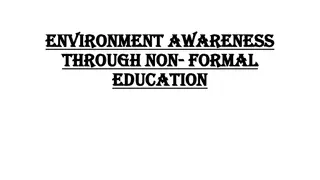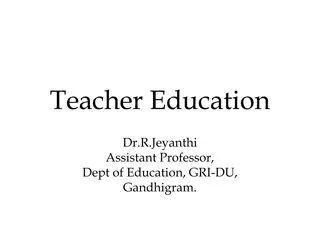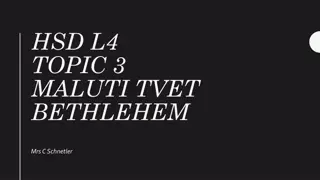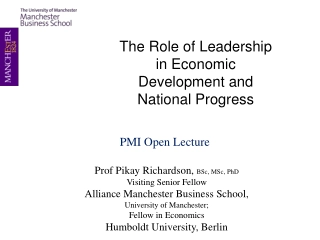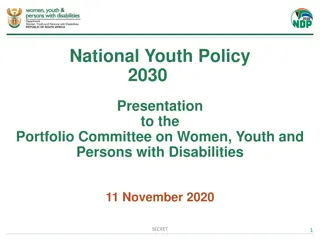Importance of Education in National Development
Education stands as a crucial factor in the drive towards development worldwide. It plays a significant role in fostering individual growth and societal advancement, contributing to national progress. Various stakeholders view education as a tool for different purposes, such as providing better opportunities for children, building a skilled workforce, and promoting ethical values. The FRSC Education policy aims to enhance the proficiency and development of staff through progressive courses and continuous learning opportunities.
Download Presentation

Please find below an Image/Link to download the presentation.
The content on the website is provided AS IS for your information and personal use only. It may not be sold, licensed, or shared on other websites without obtaining consent from the author. Download presentation by click this link. If you encounter any issues during the download, it is possible that the publisher has removed the file from their server.
E N D
Presentation Transcript
All over the world education stand as the major factor in the drive to development. A nation or organization cannot strive to greatness without paying much attention to the education of citizen or workforce. FGN (1998) stressed that education is an instrument for national development. It fosters the worth and development of the individual, for each individuals sake and for the general development of the society. It can be confirmed from this that education develops a societal development and for national advancement. man for self-fulfillment,
Brown (1995) in his wisdom opined that Parents view the process of education as means of providing their children with better life regardless of their own social position, children soon learn that school is a stepping stone to a job, administrator and politicians see education as a vehicle to perpetuate a form of government, churches/mosques look on it as a means for inculcation ethical and spiritual values, international agencies regard education as a source of modernization (pg.408)
The aim of this lecture is to acquaint Cadet Officers with the provisions of the FRSC Education policy.
Enhance interest in ones job Removes negative attitude to work Improves performance and productivity Removes tardiness Checkmates excessive absenteeism Discourage complaints Improves quality of output Reduces incidence of accident at work Reduce rate of insubordination Brings about easy adaption to new technology Enhances efficient implementation of new policies a. b. c. d. e. f. g. h. i. j. k.
Courses to be pursued shall be progressive and targeted essentially at development staff and knowledge, so as to improve proficiency. Courses to be pursued shall be relevant schedule or preparatory to taking up a new schedule. A staff shall qualify to pursue further studies on part-time basis in any of the approved courses and approved institution of learning after spending a minimum of two (2) years with the corps from the first day of appointments. Minimum of five (5) years is approved for full- time basis
A staff seeking approval for further studies shall complete from TSC/EDU/O1A Career progression training at the FRSC Academy and Training school shall be accorded priority, while training with short duration in any recognized professional institution shall be encourage. Development staff after training shall take cognizance of the new skill acquired. Staff to be granted approval for further studies shall not exceed 5% of the total staff strength in the corps at any given years and such approval shall be subject to availability of fund.
Any staff on course can be re-called by the corps marshal and chief Executive, should the need arise. Staff who are unable to complete any course of study within the normal duration may apply to the corps marshal and chief Executive for extension through Training standards and certification Department. Any staff that has put in 34years in service or attained 59 year of age should not be qualified for a sponsored course of study leave without pay. A marshal shall not be considered for conversion if he did not secure approval to go on the course in the first instance. A staff shall qualify to pursue any of the approved courses if free of any disciplinary case that could lead to termination/dismissal.
Short- Duration courses Part-time courses Foreign courses Technical assistance
APPROVED COURSES OF STUDY SHORT DURATION COURSES These are training programmes not exceeding six (6) months which shall be handled by FRSC Training Institutions (Academy & Training School). Apart from this, staff may be nominated and sent to Universities/ Government institutions offering similar short duration courses such as: Centre for Management Development (CMD) Civil Service College (CSC) National Information and Technology Development Agency (NITDA) Digital Institute Nigerian Army School of Supply & Transport TV College/Nigeria Film Institute Public Service Institute of Nigeria Citizenship & Leadership Training Centre.
PART-TIME COURSES 11. The conditions for part-time courses shall be as follow: Approval may be given to staff to engage on part- time studies if the course is relevant to the commission. Staff proceeding on part-time studies shall do so completely at his own expense for courses that will lead to the award of certificate, National Diploma (ND), Higher National Diploma (HND) and Bachelors Degree.
FOREIGN COURSES: Staff of the rank of RC and above shall be considered for foreign courses, except where otherwise dictated by the needs/demands of the job or where offers of training from multilateral agencies or friendly donor countries specifically request participants of a lower rank. It is good to note that staff selected for foreign courses shall be entitled to full sponsorship during the period of study according to financial regulations.
Partial Sponsorship Full Study Leave without pay Sponsorship
FULL SPONSORSHIP Postgraduate and Masters Degree beneficiaries shall receive an amount for tuition, books and project as contained in the admission letter of the institution. The transportation shall be determined on location. Specialized and professional courses Institute for Policies and Strategic Studies (NIPSS), National Defence College (NDC), Armed Forces Command and Staff College (AFCSC) and Administrative Staff College (ASCON), shall also receive full sponsorship and monthly allowance as follows: DCM N100,000 ACM -- N90,000 CC/DCC N70,000 ACC/CRC -- N60,000 SRC/RC -- N50,000 DRC/ARC -- N40,000 cost of accommodation and undertaken at National
FULL SPONSORSHIP Staff on full sponsorship shall also: Be released from duty Be entitled to continuous payment Be entitled to promotion during the period of study. This category of staff shall maintain effective communication with management through TSC for the period of study.
PARTIAL SPONSORSHIP Partial sponsorship may be enjoyed by staff who are to pursue higher degrees including PhD not exceeding 36 months for specialized courses. A maximum of N500,000 only shall be given to beneficiaries for tuition, books and projects for PGD and Masters degree programmes while a maximum of 1,000,000 for Ph.D.
STUDY LEAVE WITHOUT PAY If the course of study is relevant, approval shall be given to staff (Officers and Marshals) whose appointment has been confirmed and have served the corps for a minimum of five (5) years and such staff shall do so exclusively at their own expense. For courses leading to award bachelors degree and above, the duration of which shall not be more than 48 months.
NOTE: Any staff going on approved course shall be bonded as indicated below: The signing and execution of the bond document is regarded as part of the approval for further studies. Where such is not signed it should be regarded as null and void. S/ N i. COURSE PERIOD OF BOND 3 years All sponsored courses leading to the award of first degrees and equivalents (LLB and BL inclusive) etc. ii. All specialized courses leading to the award of Masters degree and above All sponsored specialized courses leading to admission into membership of the professional institutions e.g. NIPSS, NDC, ASCON, AFCSC, NITT, NIALS, etc. All sponsored foreign courses 2 years iii. 2 years iv. 3 years
The FRSC educational policy is the manual that specifies training requirements, procedure and opportunities for staff of the corps. The different types of courses reflected, in the policy is to accommodate the diverse training needs of staff commensurate with the job schedule and organizational needs. FRSC staff are therefore encouraged to take advantage of this opportunity to enhance their career progression.
THANK YOU FOR LISTENING




